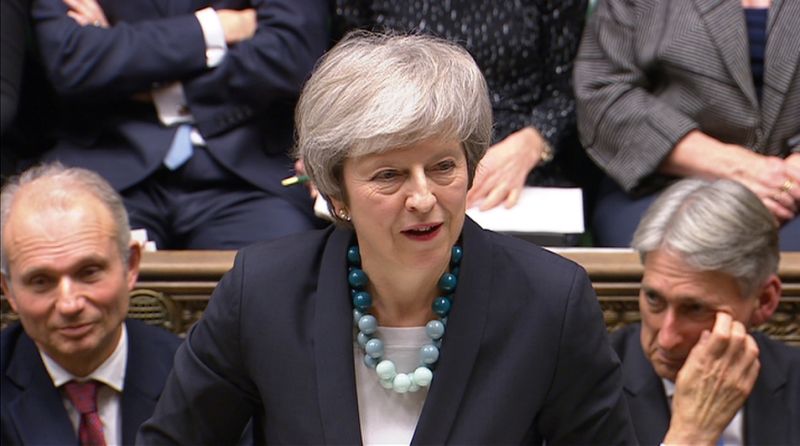Conservative MPs have triggered a vote of no confidence in Theresa May plunging the Brexit process into chaos as Tory colleagues indicated they no longer had faith in the prime minister to deliver the deal.
With less than four months left until the United Kingdom is due to exit on March 29, the world’s fifth largest economy was tipping towards crisis, opening up the prospect of a disorderly no deal divorce or a reversal of Brexit through a referendum.
Graham Brady, the chairman of the party’s so-called 1922 committee, said the threshold of 15 percent of the parliamentary Conservative Party seeking a confidence vote had been reached.
“The threshold of 15 percent of the parliamentary party seeking a vote of confidence in the leader of the Conservative Party has been exceeded,” Brady said, adding that he had told May of that development on Tuesday night by telephone.
With less than four months left until the United Kingdom is due to exit on March 29, the world’s fifth largest economy was tipping towards crisis, opening up the prospect of a disorderly no deal divorce or a reversal of Brexit through a referendum.
Graham Brady, the chairman of the party’s so-called 1922 committee, said the threshold of 15 percent of the parliamentary Conservative Party seeking a confidence vote had been reached.
“The threshold of 15 percent of the parliamentary party seeking a vote of confidence in the leader of the Conservative Party has been exceeded,” Brady said, adding that he had told May of that development on Tuesday night by telephone.
A ballot will be held between 1800 and 2000 on Wednesday in a room at the House of Commons and an announcement made as soon as possible afterwards, he said.
“The votes will be counted immediately afterwards and an announcement will be made a soon as possible in the evening,” Brady said.
May could be toppled if 158 of her 315 lawmakers vote against her, though a big mutiny could also scupper her leadership.
Brexit is Britain’s most significant political and economic decision since World War Two. The ultimate outcome will shape Britain’s $2.8 trillion economy, have far reaching consequences for the unity of the United Kingdom and determine whether London can keep its place as one of the top two global financial centers.
The British pound, which has lost 25 cents against the U.S. dollar since the 2016 referendum, fell to $1.2478.
“SHE MUST GO”
Ever since formally triggering the Brexit divorce in March 2017, May has sought to find a way to keep Britain closely aligned with the EU after its exit.
But on Monday, she abruptly pulled a parliamentary vote on her deal in the face of ridicule from lawmakers. She then rushed to Europe in an attempt to get assurances from EU leaders about the deal.
Brexit-supporting lawmakers in her party have accused May of betraying Brexit in negotiations while opponents of Brexit say she has negotiated a deal that is the worst of all worlds – out of the EU but with no say over the rules it has to abide by.
A schism over Europe in the Conservative Party over Britain’s relationship with the EU contributed to the fall of all three previous Conservative premiers – David Cameron, John Major and Margaret Thatcher.
Brexit-supporting lawmakers in her party have accused May of selling out Brexit in negotiations.
“Theresa May’s plan would bring down the government if carried forward,” lawmakers Jacob Rees-Mogg and Steve Baker said in a statement.
“But our Party will rightly not tolerate it. Conservatives must now answer whether they wish to draw ever closer to an election under Mrs May’s leadership. In the national interest, she must go.”
But some ministers expressed support for her with Home Secretary Sajid Javid saying a leadership contest was the last thing Britain needed.
“The last thing our country needs right now is a Conservative Party leadership election. Will be seen as self-indulgent and wrong,” Javid said.
“PM has my full support and is best person to ensure we leave EU on 29 March,” he said.
source: Reuters
